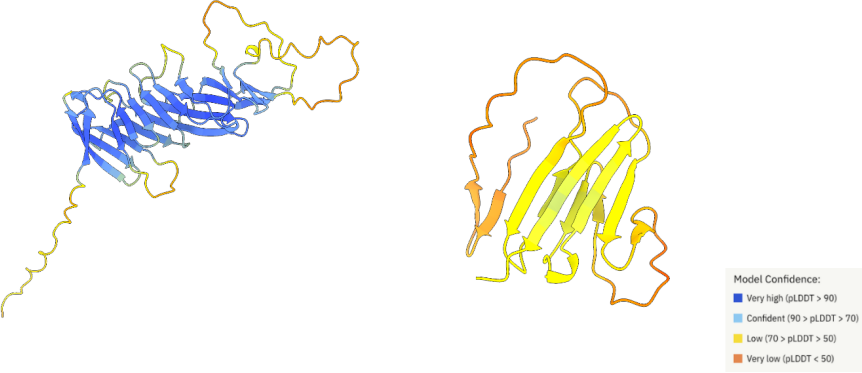AI driven design of CAR T-cell therapies
Title: AI driven design of CAR T-cell therapies
Project duration: 9/2023 – 08/2026
Research Area: AI Methods for Health
Artificial Intelligence (AI) is transforming basic research and clinical medicine by managing complex data such as gene sequences, protein structures, and clinical images. Recent advancements in predicting protein structures present an opportunity to develop workflows that translate AI research into actionable molecular hypotheses, complemented by visually compelling representations. This project focuses on analyzing predicted structures and confidence scores of alternative splice variants of the CAR target CD19. We aim to understand how exon skips affect the three-dimensional characteristics of these proteins, which may explain some CAR therapy failures, such as missing potential epitope regions. Our findings will help create a more informed decision-making process for CAR therapies in the future.

Fig.1 Predicted structures for the CD19 wildtype sequence (left) and a reported splice variant (right).
Aims
We aim to evaluate the plausibility of various splice variants annotated in different databases. To enhance comparability, we will seek experimentally validated structures of CD19 and use predictive methods to generate and assess their quality. Additionally, we will identify potential epitope regions that might be absent in exon skip variants linked to escape mechanisms.
Technology
We utilize AlphaFold, an advanced AI system from DeepMind, for predicting protein folding structures with high accuracy. This technology allows us to generate 3D models for alternative splice variants of CD19. For model visualization, we use UCSF Chimera.
Team
Lead
- Prof. Dr. Jens Meiler (University Leipzig)
- Dr. rer. nat. Kristin Reiche (Fraunhofer Institute for Cell Therapy and Immunology IZI)
Team Members
- Johannes Klier
- Florian Große (ScaDS.AI)




